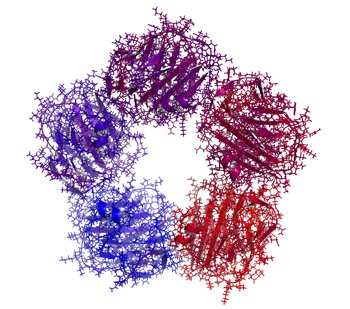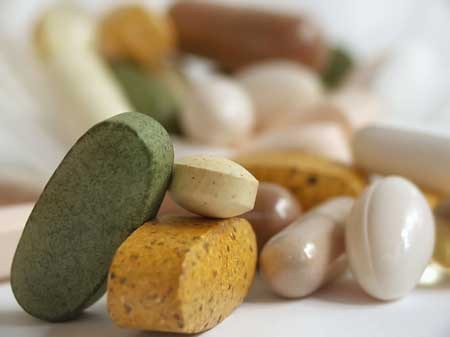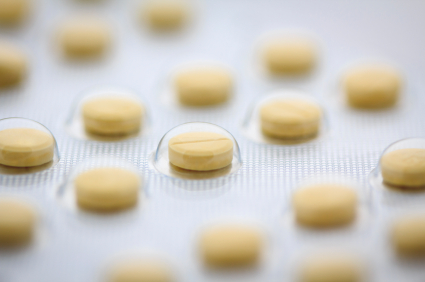Dr. Post’s Recommendations For Treating Youth with Bipolar Symptoms
Our Editor-in-Chief, Dr. Robert M. Post, shares his personal recommendations for the treatment of children and adolescents with symptoms of bipolar disorder. Remember: Patients and family members must consult a physician about all information conveyed in the BNN. With the exception of lithium, none of the medications or supplements discussed above have been approved by the US Food and Drug Administration for use in children under 10. The findings reported here are in many cases preliminary and cannot be taken as recommendations based on the short summaries provided here. All treatment decisions must be made in conjunction with a patient’s treating physician, who is solely responsible for initiating any treatment discussed in the BNN or elsewhere.
In symptomatic and functionally impaired children, medication is almost always necessary. Many treating psychiatrists would start with an atypical antipsychotic, since there is clear evidence of the efficacy of such treatments. The side effects profile should be considered, as there is a considerable difference in the degree of weight gain associated with different atypical antipsychotics. The largest weight gains occur with olanzapine and clozapine, intermediate gains occur with aripiprazole and quetiapine, and the least gains occur with ziprasidone and lurasidone (and the latter has the advantage of being approved by the US Food and Drug Administration for the treatment of bipolar depression in children who are 10–17 years old). The addition of the diabetes drug metformin to decrease weight gain in people taking atypical antipsychotics is increasingly common.
The addition of an anticonvulsant medication (such as lamotrigine, carbamazepine/oxcarbazepine, or valproate) or the mood stabilizer lithium may be needed, as multiple studies indicate that combination treatment is typically needed in children (as in adults) to achieve a more complete response or remission.
Interestingly, oxcarbazepine was effective in younger but not older children with mania in a previous placebo-controlled study by Karen D. Wagner and colleagues published in the American Journal of Psychiatry in 2006.
Conversely, in a 2015 article in the journal JAACAP, researcher Robert Findling reported that in a placebo-controlled study of lamotrigine, 13–17-year-olds responded better than 10–12-year-olds.
Lithium treatment deserves consideration in children with classical presentations of bipolar disorder and those who have family members who have responded well to lithium treatment.
Lithium has the benefit of improving the white matter abnormalities seen in the brains of patients with early-onset bipolar disorder. Hafeman and colleagues reported in a 2019 article that children with bipolar disorder who were treated with lithium had better long-term results upon follow up than those treated with atypical antipsychotics or anticonvulsants.
There is much less scientific consensus about other adjunctive treatments for young people with additional bipolar symptoms and comorbidities, but this editor often uses several. Vitamin D3 is often low in children with psychiatric illness, and may improve mood and cognition.
The antioxidant N-acetylcysteine (NAC) helps depression, anxiety, and irritability, and is effective at treating habit-related behaviors such as trichotillomania (compulsive hair-pulling), obsessive-compulsive disorder (OCD), and drug use, including specifically reducing marijuana use in adolescents. A typical dose is 500–600 mg capsules, one capsule twice a day for one week, then two capsules in the morning and two in the evening thereafter.
Folate or folic acid may enhance antidepressant effects and those of lithium. In patients who have a particular low-functioning variant of a gene known as MTHFR, L-methylfolate is required instead of folate.
The widely-used supplement acetyl-L-carnitine (ALC) is poorly studied in children, but deserves consideration as a supplemental treatment for patients with histories of childhood adversity. In adults with depression, blood levels of ALC may be low, particularly in those with an early onset of bipolar symptoms and a history of childhood adversity (see a 2018 article by Carla Nasca in the journal PNAS). There is a modicum of evidence that ALC produces antidepressant effects in adults. ALC may also sensitize insulin receptors and normalize blood pressure.
There is increasing evidence of the role of inflammation in depression, mania, post-traumatic stress disorder (PTSD), and schizophrenia. Checking for abnormalities in inflammatory markers in the blood (especially Il-6 and CRP) may point the way to appropriate therapy with anti-inflammatory drugs such as minocycline (100 mg twice a day) or celecoxib (200 mg twice a day) in patients who do not respond fully to first-line medications.
Baseline Levels of CRP Could Help Predict Clinical Response to Different Treatments
C-reactive protein, or CRP, is a marker or inflammation that has been linked to depression and other illnesses. People with high levels of CRP respond differently to medications than people with lower CRP, so assessing CRP levels may help determine which medications are best to treat a given patient.
High baseline levels of CRP (3–5pg/ml) predict a poor response to selective serotonin reuptake inhibitor antidepressants (SSRIs) and to psychotherapy, and are associated with increased risk of recurrent depression, heart attack, and stroke.
However, high baseline CRP predicts a better response to the antidepressants nortriptyline and bupropion. High CRP is also associated with better antidepressant response to infliximab (a monoclonal antibody that inhibits the inflammatory cytokine TNF alpha), while low levels of CRP predict worsening depression upon taking infliximab.
High baseline CRP also predicts good antidepressant response to intravenous ketamine (which works rapidly to improve treatment-resistant depression), minocycline (an anti-inflammatory antibiotic that decreases microglial activation), L-methylfolate (a supplement that can treat folate deficiency), N-acetylcysteine (an antioxidant that can improve depression, pathological habits, and addictions), and omega-3 fatty acids (except in people with low levels of DHA).
High baseline CRP also predicts a good response to the antipsychotic drug lurasidone (marketed under the trade name Latuda) in bipolar depression. In people with high baseline CRP, lurasidone’s positive results have a huge effect size of 0.85, while in people with low CRP (<3pg/ml) the improvement on lurasidone has a smaller effect size (0.35).
In personal communications with this editor (Robert M. Post) in 2018, experts in the field (Charles L. Raison and Vladimir Maletic) agreed that assessing baseline CRP levels in a given patient could help determine optimal strategies to treat their depression and predict the patient’s responsiveness to different treatment approaches.
At a 2018 scientific meeting, researchers Cynthia Shannon, Thomas Weickert, and colleagues reported that high baseline levels of CRP were associated with symptom improvement in patients with schizophrenia when they were treated with the drug canakinumab (marketed under the trade name Ilaris). Canakinumab is a human monoclonal antibody that targets the inflammatory cytokine interleukin-1 beta (Il-1b). Il-1b is elevated in a subgroup of patients with depression, bipolar disorder, or schizophrenia, and CRP levels are an indication of the associated inflammation.
Certain ‘Nutraceuticals’ Aid Depression Treatment
A systematic review of research on the value of pharmaceutical-grade nutritional supplements, or ‘nutraceuticals,’ in depression treatment has found that several do indeed improve depression symptoms.
The 2016 review by Jerome Sarris and colleagues in the American Journal of Psychiatry found that the following nutraceuticals primarily produced positive results compared to placebo: omega-3 fatty acids (primarily EPA or ethyl-EPA); vitamin D; l-methylfolate (a more potent form of folic acid); and S-adenosyl methionine or SAMe, a beneficial compound created from toxic homocysteine with the help of folate.
Editor’s Note: Most of these compounds can also be useful in bipolar depression. Omega-3 fatty acids and vitamin D are helpful to many patients. L-methylfolate is particularly helpful to the 30% of the population with a MTHFR deficiency that interferes with the ability of folate to break down homocysteine. SAMe is an exception—while it is effective in unipolar depression, it may cause switching into mania in patients with bipolar disorder.
The researchers identified a few additional nutraceuticals that each had one study supporting their use—creatine, sometimes used by weightlifters to provide extra energy to muscles; folinic acid, which can protect bone marrow and other cells during chemotherapy; and a combination of amino acids.
Results from studies that compared other compounds to placebo were mixed. Those included studies of zinc, folic acid, vitamin C, and the amino acid tryptophan. A study of inositol, a compound found in plants that is not normally digestible, had nonsignificant results.
No serious side effects were observed in any of the studies of nutraceuticals, though some caused minor digestive disturbances.
Editor’s Note: Another beneficial nutraceutical that did not appear in the review article is N-acetylcysteine. In 6- to 8-week studies, NAC improved depression and anxiety compared to placebo. It also improved bipolar depression and reduced many habits and additions in non-bipolar patients. These include cocaine and gambling addition, alcohol and nicotine use, trichotillomania (compulsive hair-pulling) and obsessive compulsive disorder (OCD).
Metabolized Form of B Vitamin Improves Depression in People with MTHFR Deficiency
MTHFR is an enzyme needed for the body to break down vitamin B9, also known as folate or folic acid. It also helps convert the toxic amino acid homocysteine into the antidepressant amino acid s-adenysl-methionine. However, a significant segment of the population (some estimate 40%) have a genetic mutation in the MTHFR gene that interferes with the body’s ability to break down B vitamins and is linked to higher levels of homocysteine. MTHFR mutations are also linked to depression.
A 2016 study by Arnold W. Mech and Andrew Farah in the Journal of Clinical Psychiatry found that treating people with major depression and a MTHFR deficiency using a combination of micronutrients and already-broken-down B vitamins improved their depression and reduced their homocysteine levels compared to placebo.
The study included 330 adult patients with major depression and one of two genetic variants in the MTHFR gene—C677T or A1298C. Of those who received the metabolized vitamins, 82.4% showed reduced homocysteine levels. Those who received placebo showed a small average increase in homocysteine. The vitamin group also saw a large drop in depression symptoms on average after 8 weeks, with 42% achieving full remission. There were no side effects.
These findings suggest that homocysteine levels play a role in depression and that metabolized B vitamins can be an effective treatment for depression, particularly in those with a MTHFR deficiency. A metabolized form of folate that is commercially available is called L-methylfolate.
L-methylfolate Improves Depression; More Effective in Overweight Patients with Inflammation
A 2012 study by Geoge I. Papkostas and colleagues found that 15mg/day of the nutritional supplement l-methylfolate calcium (a form of the B vitamin folate that the body can more readily use) improved depression in people who had not responded adequately to treatment with a selective serotonin reuptake inhibitor (SSRI) antidepressant. In a follow-up study by Richard C. Shelton and colleagues published in the Journal of Clinical Psychiatry in 2015, the same researchers further analyzed these data and found that l-methylfolate worked better in patients who were overweight (with body mass indexes (BMIs) of 30 or above) and those who had higher than average levels of inflammation at the beginning of the study. Inflammatory markers linked to greater improvement with l-methylfolate included TNF-alpha, IL-8, high sensitivity CRP, and leptin. In overweight participants, higher than average levels of IL-6 were also linked to more improvement on l-methylfolate.
Extra Folate in Those Taking L-Methylfolate Could Be Counterproductive
While the nutritional supplement folate (also known as folic acid or vitamin B9) can be useful for depression, there appears to be one instance when augmentation with regular folate could be counterproductive. In those with a transport defect associated with a MTHR (methyl tetrahydrofolate reductase) deficiency, folate can compete with l-methylfolate for uptake into the brain. Folate would thus limit the beneficial effects of l-methylfolate supplementation, which is required for this 15% of the population.
L-Methylfolate Augments the Antidepressant Effects of SSRIs in Treatment-Resistant Major Depression
The B vitamin folate has been shown to be a useful augmentation treatment for patients who are nonresponsive or only partially responsive to selective serotonin reuptake inhibitor (SSRI) antidepressants. Treatment with folate works even in those who are not folate-deficient at baseline.
When folate is broken down in the body by reductase enzymes, it turns into the active form L-methylfolate, and crosses the blood-brain barrier. Maurizio Fava and colleagues at Massachusetts General Hospital (MGH) performed two placebo-controlled, randomized studies of L-methylfolate for depression. There was significantly greater improvement when SSRIs were augmented with L-methylfolate than when they were augmented with placebo. The results were significant with the use of 15mg of L-methylfolate, but not with 7.5mg, suggesting dose-related effects. Read more








